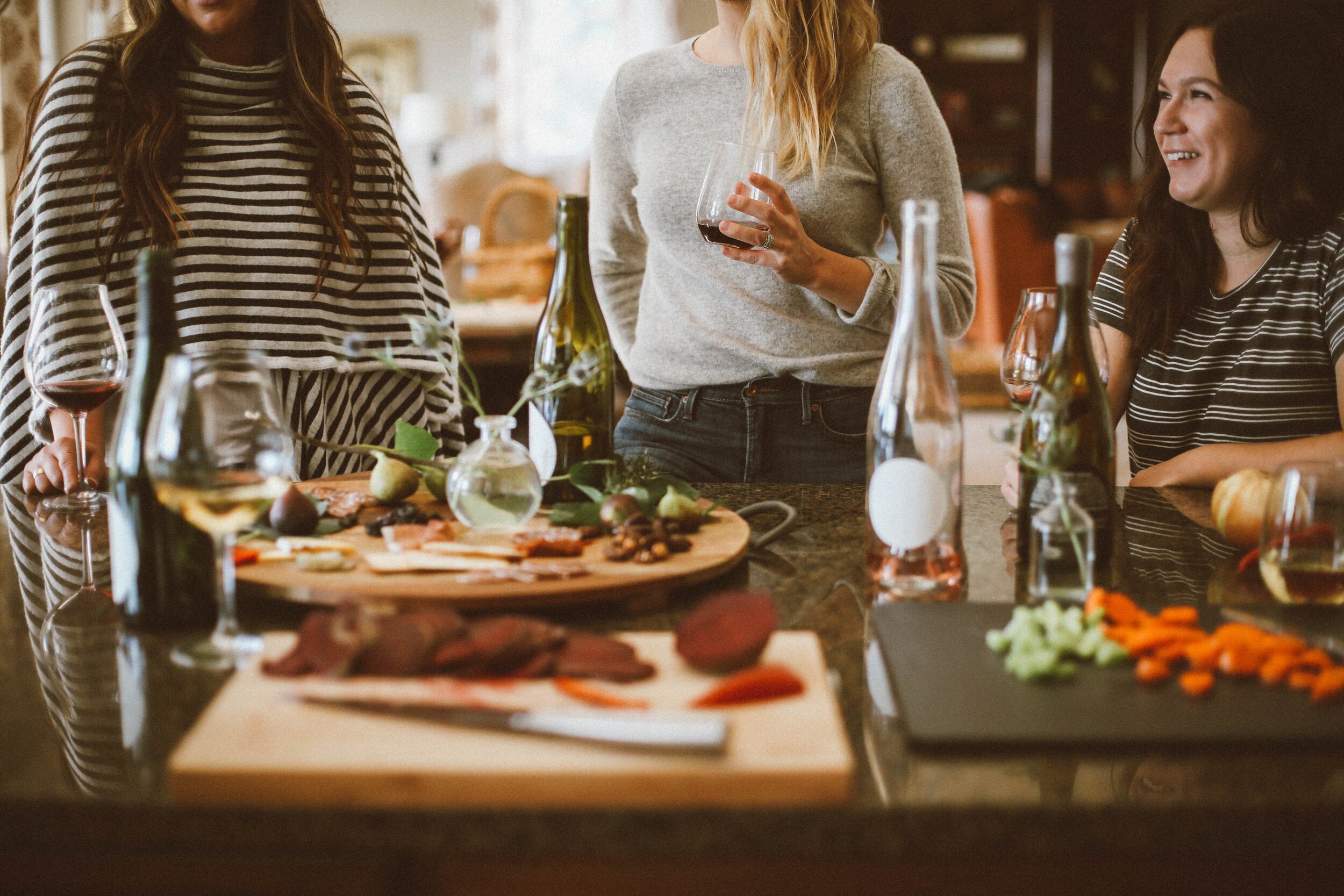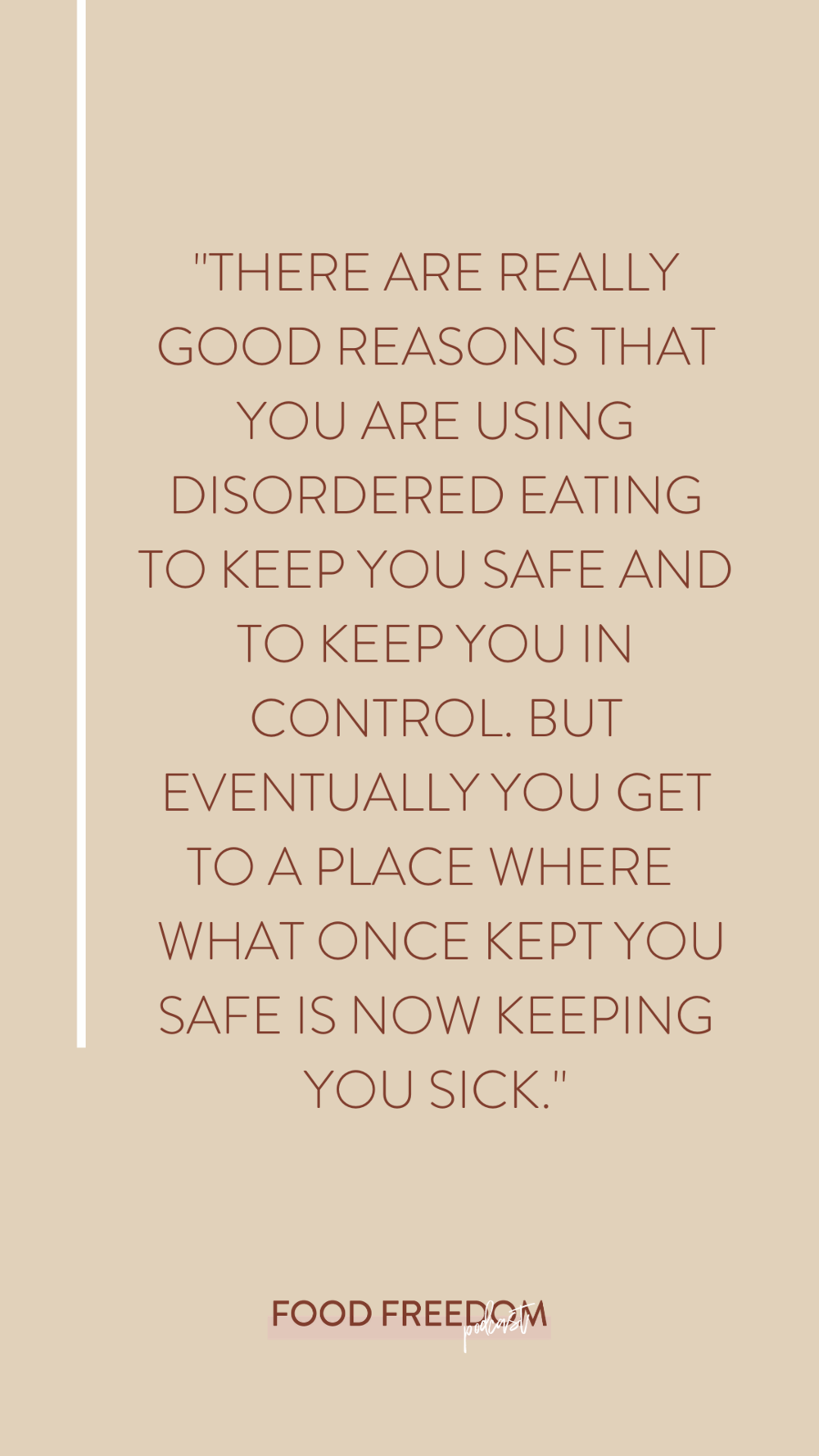A Therapeutic Approach to Eating Disorder Recovery
Content Warning and Disclaimer: Eating disorders are among the deadliest of mental illnesses. Topics relating to eating disorders such as anorexia, bingeing, and purging are discussed in this blog and podcast episode. Content here is for educational purposes only and is not a substitute for professional mental-health treatment. If you are in need of help and/or resources, contact the Helpline at NEDA. If you are in a crisis text ‘NEDA’ to 741741 to be connected with a trained volunteer at the Crisis Text line.
This past week, I had the honor of sitting down with Dylan Murphy, Registered Dietician and Nutritionist of Free Method Nutrition to talk on her podcast about how eating disorders can show up off your plate and in your relationships.
This is so important because if you can start looking at how you are restricting or bingeing or purging in your relationships, you can start to see your patterns more clearly and then you can start shifting and changing them towards health and wholeness!
Here’s what you can expect to takeaway from listening to this episode.
How patterns of anorexia, bulimia, and binge eating disorder can show up in your relationships.
Specific exercises you can implement to start exploring your relationship with food.
How food and boundaries are connected and a great way you can start setting boundaries around food. (Hint: You’ll probably be surprised by this one!)
What I’ve been learning recently in my own 15 year recovery from an eating disorder.
How Eating Disorders show up in your relationships:
On a high-level, anorexia centers a lot around restricting, starvation, limiting pleasure, and being disconnected from your body, so you can start getting curious about how that might show up in relationships such as:
How do you stay disconnected from your hunger for relationships?
How do you not let any care in?
How do you turn away from pleasure?
How do you try to take up as little space as possible in your relationships?
And then there’s bulimia which centers around this cycle of bingeing and purging.
It’s important to break that down even further and look individually at the characteristics of binging and purging.
Bingeing centers around taking in and disregarding limits as a way to self-soothe.
How do you disregard limits in your relationships?
How do you keep saying yes in your friendships, intimate relationships, work commitments, etc.?
Purging centers around getting what is inside out, usually in the form of self-induced vomiting that’s done in secret.
How are you holding secrets?
How are secrets showing up in your relationship in terms of what parts you choose to say and what parts you choose to leave out?
How might you be “emotionally purging” or “word vomiting” in newer relationships that likely don’t have a foundation of trust and support present?
How to start exploring your relationship with food?
Make a list of your favorite foods! I know, I was skeptical at it’s simplicity at first when it was suggested to me by a therapist that I do this, but it was incredibly helpful.
Do you let yourself eat these foods?
What does it mean if you eat these foods?
Are some of your favorite foods also the foods that you tend to restrict?
How food and boundaries are connected.
One of my favorite movies is Runaway Bride. They just don’t make rom-coms like they did in the nineties anymore do they?! Also, good news, Netflix recently added this movie to their platform so if you need something to watch tonight, here you go!
Runaway Bride is not just one of my favorite movies, it’s also a movie that I invite lots of people to watch because the messages are so poignant, especially as it relates to learning how to be yourself. In this movie you learn that Julia’s character, Maggie Carlton, changes the way she likes her eggs cooked based on what the favorite way of the man she is dating likes them cooked. Guy A likes them scrambled, so does she! Guy B likes them sunny side up, what do ya know, so does she! And so on and so forth.
Oof. This is so relatable. I’m imagining you too have probably changed your food order at the last minute based on what the person ahead just ordered of you. You were planning to get the burger and fries, but they ordered a salad, and you felt shame, so you switched really hast and order a salad too.
One of my favorite questions to ask is “How do you like your eggs?” It’s a literal question and it’s also a symbolic question. Because just as we watch in the movie, Maggie had to learn to be herself and in doing so learned how she really liked her eggs cooked, that’s also the work that happens in therapy.
You learn how to be yourself.
You explore what you really like.
And then when you’re out to eat, you practice ordering what you actually want to eat, not just what to eat based on what everyone else is getting. While this can sound easy, especially for folks who have histories of disordered eating, actually tuning into what your body wants and then letting yourself eat what you are craving can take a lot of work.
What I’ve been learning in my own recovery:
My husband and I got married almost four years ago. Something we’ve had to navigate in our marriage is just how different our relationships with food are. Not only do we naturally crave different foods, our stories around food are so different.
Jordan is more comfortable in the kitchen and loves to cook. He can mix flavors and does most of his cooking intuitively. Me on the other hand, I’m a hasty cooker, and don’t find the kitchen is my favorite place to hang out. Cooking feels more like a chore whereas to Jordan it’s a way he gets to wind down and practice being creative.
One incredible thing that Jordan has taught me is that there is a difference between food made with love and food not made with love. Love comes from slowing down, from being present, from thinking about what would taste good together, and doing all of this in anticipation of serving something with compassion and care to those you love.
Since he does most of the cooking in our home, I’ve grown to be able to taste when food is made with love and when it isn’t and I have to tell you, it’s been incredibly healing for me and I hope it can provide a source of inspiration for you that there is always more healing available to you!
Here are the links to listen to this episode in its entirety:
Healing from an eating disorder is possible.
You don’t have to keep struggling in silence. If you are in South Carolina and wanting to heal from an eating disorder, visit my therapy practice, Fig Holistic Psychotherapy and reach out to schedule a free 15 minute phone consult to see if working together therapeutically feels like it could be a good fit.



